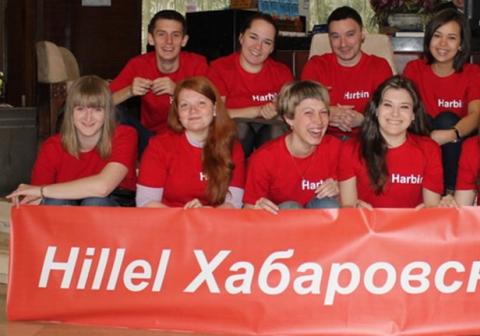Appreciating Hillels on college campuses
A case in point is the recent attack on the Hillel at the University of California- Berkeley in the pages of The Jerusalem Post. The article rehashes events of more than five years ago. It is old news, poorly reported and devoid of all context. The charge is that Hillel is a collaborator with anti-Israel elements on campus. Not true. This example need not long detain us. Kesher Enoshi, a now defunct student organization at Berkeley, held an offensive event on campus in 2009, not at the Hillel.
The pernicious allegation is that Hillel then and now is actively supportive of Students for Justice in Palestine and its agenda. Nonsense. When the event occurred, Berkeley Hillel issued the following statement: “The Executive Director clearly expressed Berkeley Hillel’s opposition to co-sponsoring the event. Berkeley Hillel believes that the advancement of peace and security is not served by this event.”
So much for half-baked revisionist history. What is Berkeley Hillel doing today? What is the evidence on its activities? Since Rabbi Adam Naftalin- Kelman assumed the executive director position in 2009, it has sent hundreds of students on Birthright trips to Israel, sponsored 50 students to attend AIPAC and other conferences, hosted five Israel fellows, hosted countless pro-Israel speakers and has been the campus leader in opposing anti-Israel and pro-boycott initiatives on campus. Hillel students are in the forefront of efforts to defend the legitimacy of the Jewish state. A survey reported that 96 percent of active Hillel students self-report as supporters of Israel. There is no problem except in the minds of the uninformed. The students and the Hillel staff deserve commendation and not sniping criticism.
Of course the Berkeley Hillel, like all Hillels, is not an island of groupthink conformity. Students do not take well to ideological force-feeding; they are not conduits for the opinions of others; they are smart and reflective. There are diverse opinions on all manner of subjects, including Israel, and that is all to the good. We need to have more faith in freedom of expression and the good judgment of our children and grandchildren.
What is most irritating in some of the criticisms is the myopic vision of the role of Hillels – as if they should be singly engaged in political advocacy. Students are not foot-soldiers for any group. Hillels allow tens of thousands of Jewish college students, who are often far from their homes, to connect with their religion and community. They are in the business of helping students make life choices when their parents are not close at hand. They inspire students to lead a Jewish life.
This is accomplished through religious and social programming, community building and social justice projects. This is a complex and compelling mission; it is not unidimensional. To achieve their mission Hillel professionals must be able to meet student where they are and to facilitate caring conversations with peers and professionals. The complexities of modern Jewish life and the important relationship of Jews in the Disapora to Israel need to be explored at a personal level. I firmly believe that we can trust Hillel professionals and boards and student leaders to make the right choices in these sensitive areas. I have less faith in the helicopter critics.
There is too much political anger on university campuses today, too little robust debate, too much suppression of robust debate about Israel, too much degrading of First Amendment principles and too much latent and overt anti-Semitism. Jewish students must learn to deal with all of this – and they do remarkably well. In the end Hillel is better equipped than any other group to educate and nurture them. The Jewish community should express its appreciation to Hillel and not seek to deprecate its splendid record of accomplishment.
Mark G. Yudof

